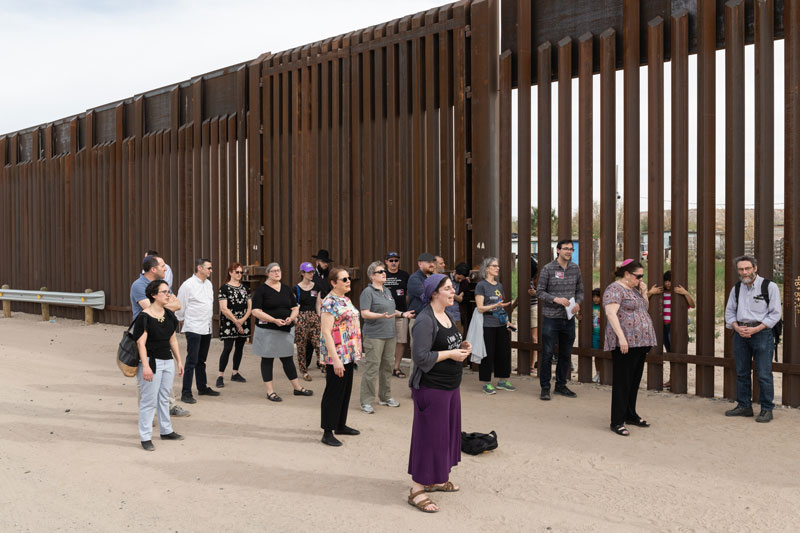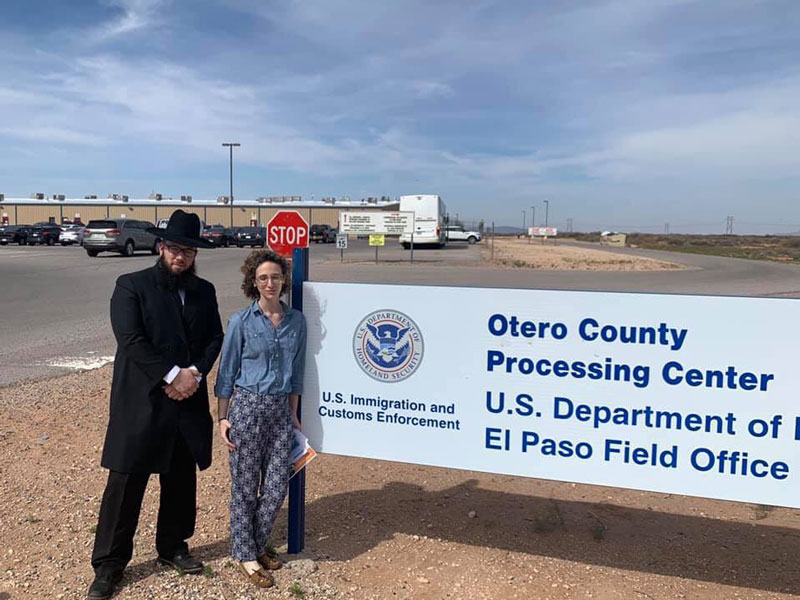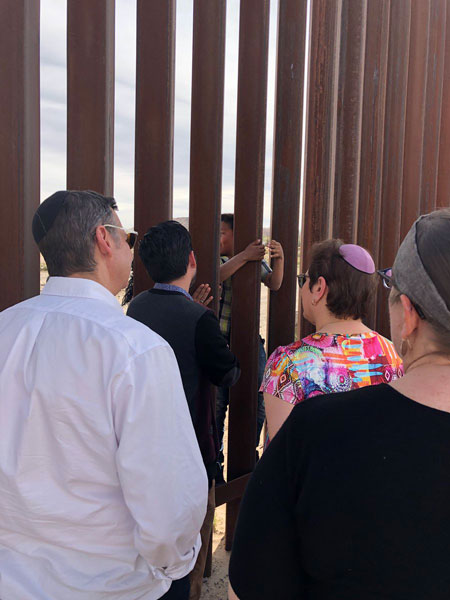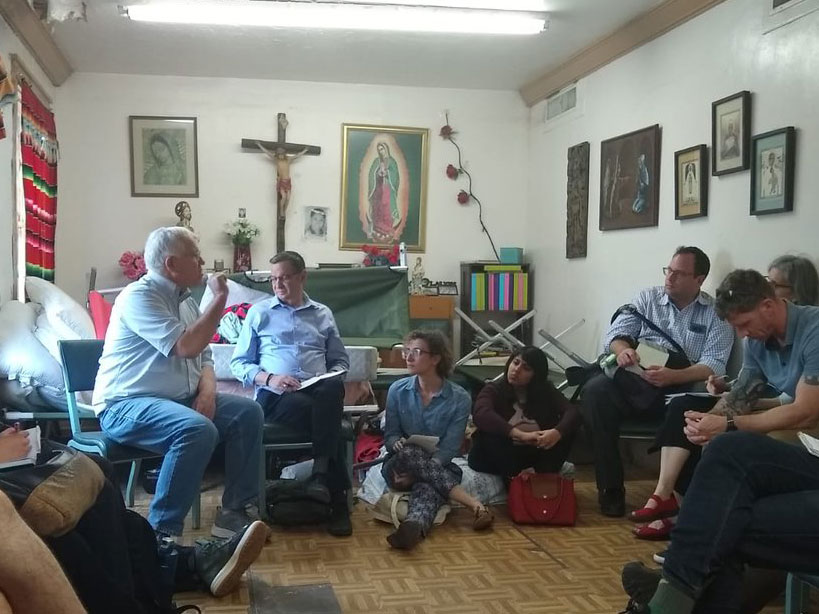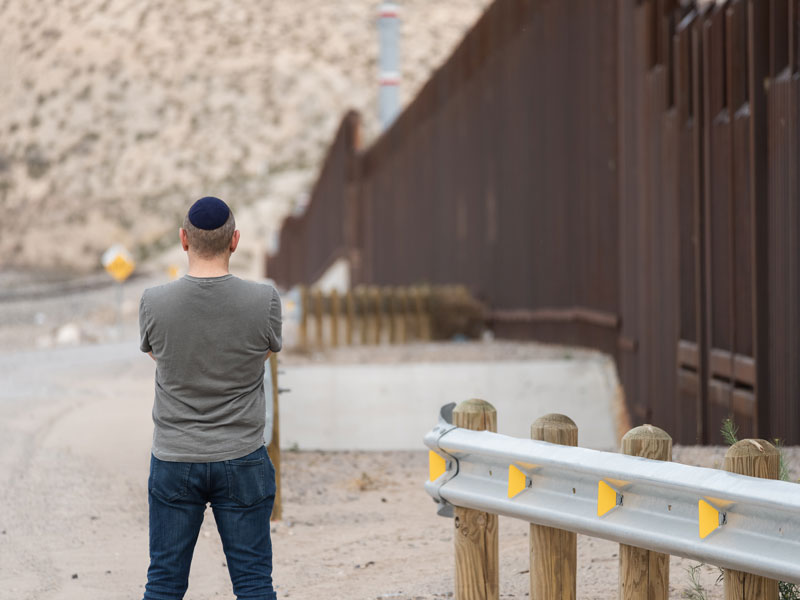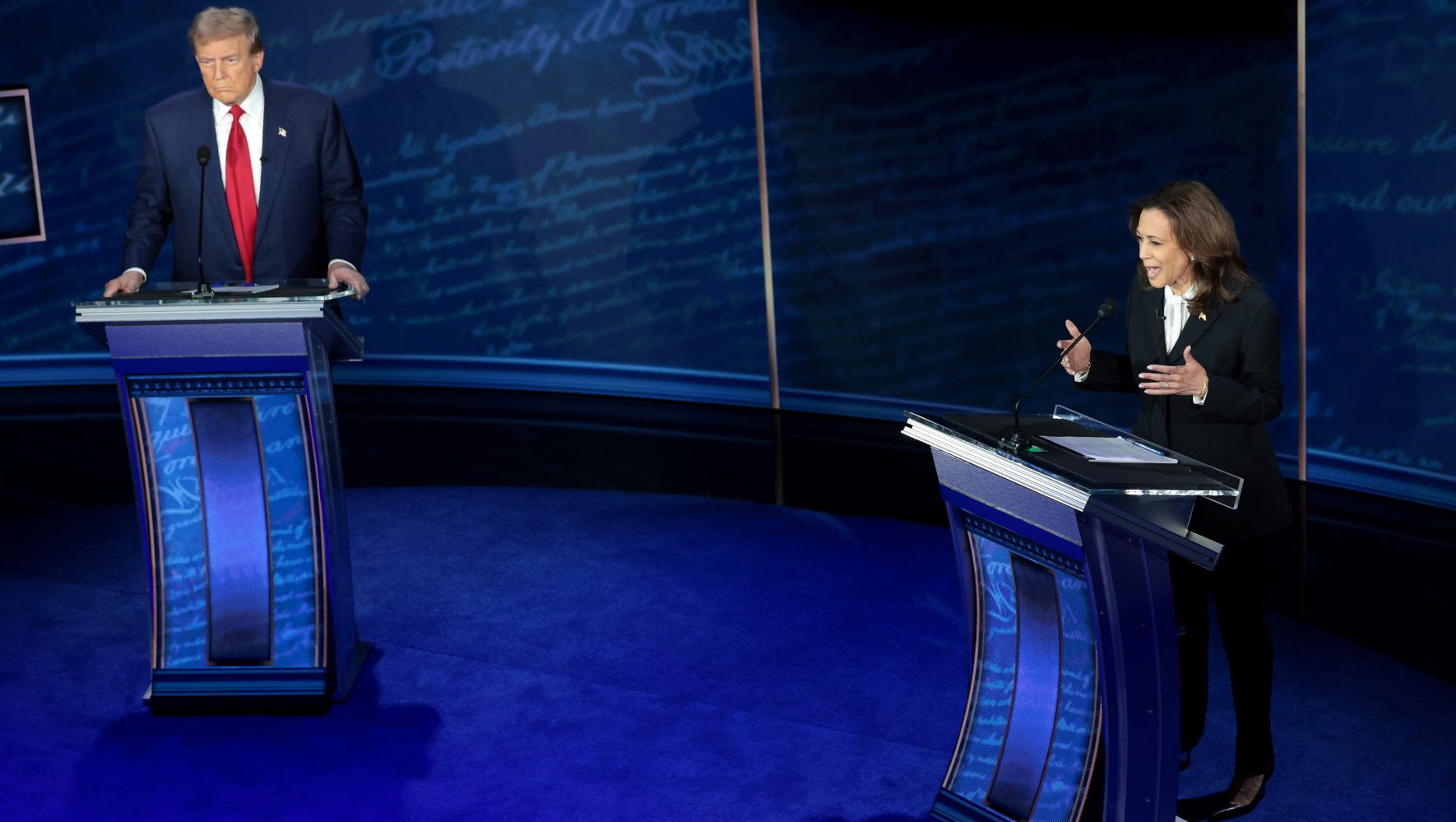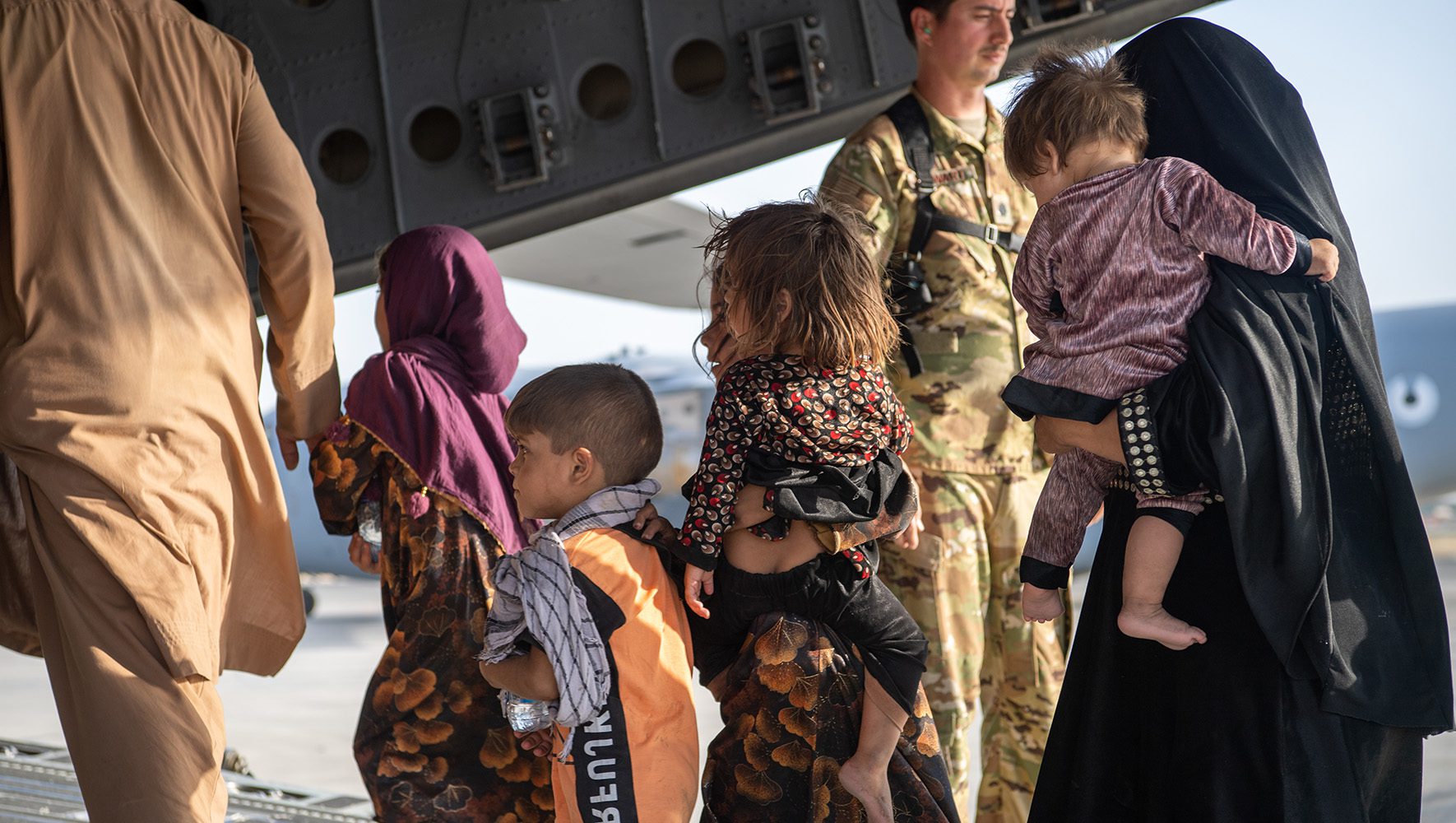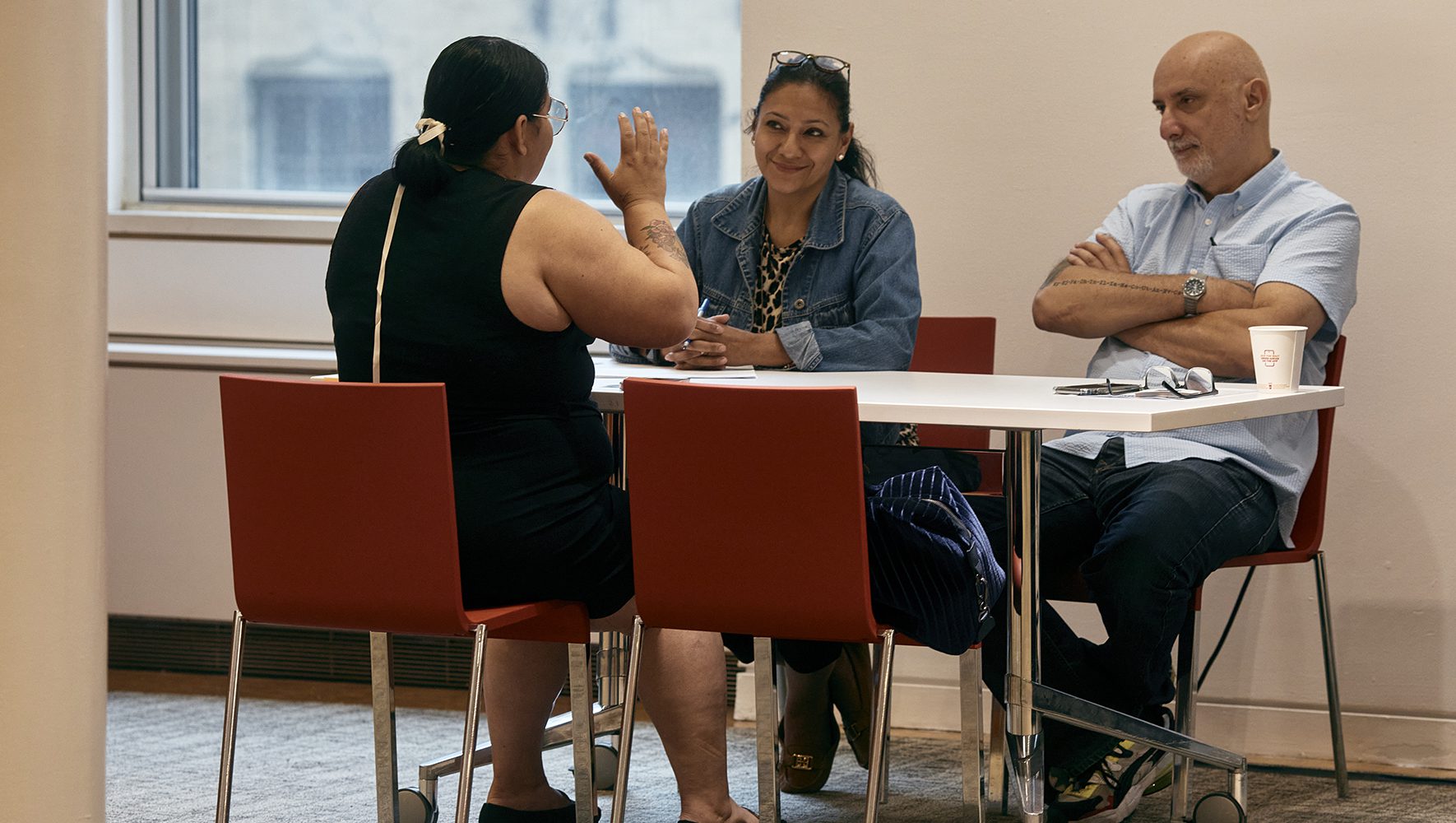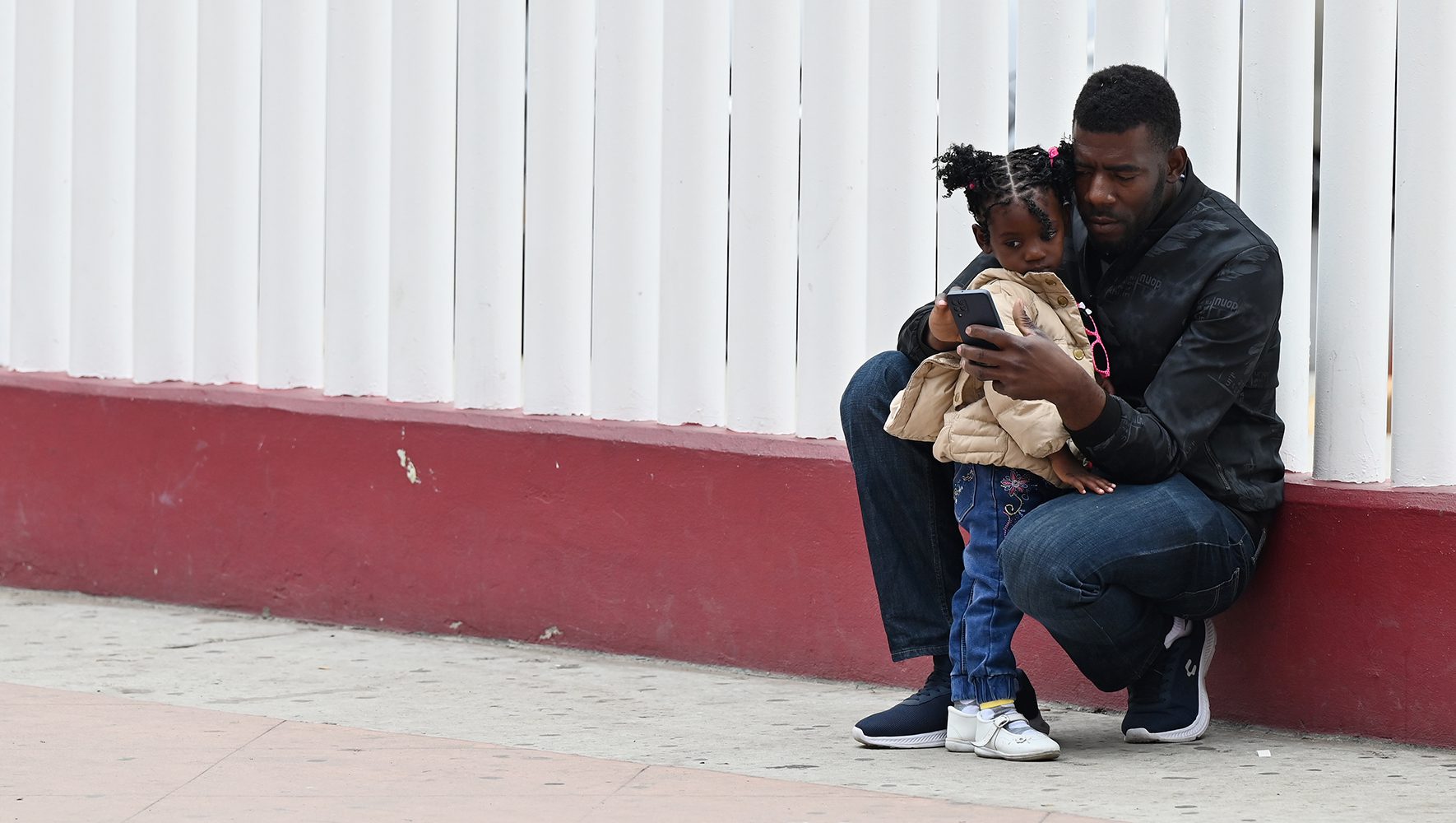Jewish Clergy at U.S.-Mexico Border Examine Human Rights Issues
By Sharon Samber, HIAS.org
Apr 02, 2019
Last week, in an effort to gain a deeper understanding of one of the more complex issues facing U.S. society, more than 20 rabbis, cantors, and activists spent three days at U.S.-Mexico border on a human rights delegation led by HIAS and T’ruah, the rabbinic human rights organization.
The group, with representatives from across the country, toured the Otero County Processing Center in Chaparral, New Mexico, an immigration detention facility where gay and transgender detainees alleged abuse recently, and Casa Franklin in El Paso, run by Southwest Key Programs, the country’s largest operator of shelters for migrant children, which is under investigation by the Department of Justice.
The delegation traveled across the border into Ciudad Juarez to tour a shelter which houses hundreds of asylum seekers; met with immigration advocates at the Hope Border Institute and Las Americas Immigration Advocacy Center; held a prayer service at the border wall; and visited Annunciation House, which runs a network of organizations and volunteers that shelter thousands of asylum seekers every week, who have been released en masse by ICE.
Later in the trip, the group crossed the border on foot, and witnessed some of the hundreds of asylum seekers who were being held by U.S. Customs and Border Protection (CBP) under the bridge at the Paso del Norte crossing. The group has since been moved to a CBP station.
These experiences made strong impressions to those on the trip. “The people we met on this delegation deserve to be welcomed with compassion, and instead their human rights are being denied, and they are treated with hostility, violence, and neglect,” said HIAS Director of Grassroots Campaigns Rebecca Kirzner. “It is a moral outrage, and an affront to not only our American values, but our Jewish values. As a people who are called to welcome the stranger, the Jewish community will advocate unceasingly for the rights of asylum seekers at our border and everywhere.”
CBP Commissioner Kevin McAleenan said last week that the immigration system is at its “breaking point.” The number of new arrivals in March was expected to reach 100,000, including 55,000 family members.
For Rabbi Amichai Lau-Lavie of the Lab/Shul, much of what he saw echoed the Passover story of Jews escaping Egypt. Whether it was the more than 1,000 men waiting for hearings in prison-like conditions, or families herded en masse through criminal hearings, or shelters on both sides of the border stretched far beyond capacity, Lau-Lavie said he will be influenced by the trip at his seder.
“This year, let’s not just repeat the master story of our historical liberation: Let’s be part of the movement that makes history happen now for millions who seek the freedom and dignity each one of us deserves,” he wrote in a letter to colleagues and communities.
Rabbi Salem Pearce, T’ruah’s director of organizing, highlighted the positive things she saw.
“In the face of the deep injustice being perpetrated at our border, we have also seen the goodness and humanity that has risen to respond to it ,” she said. “People who are providing shelter and legal assistance on both sides of the border are living out the values of welcome and compassion. It is a reminder to us that even in the face of darkness, there are people who bring light.”


